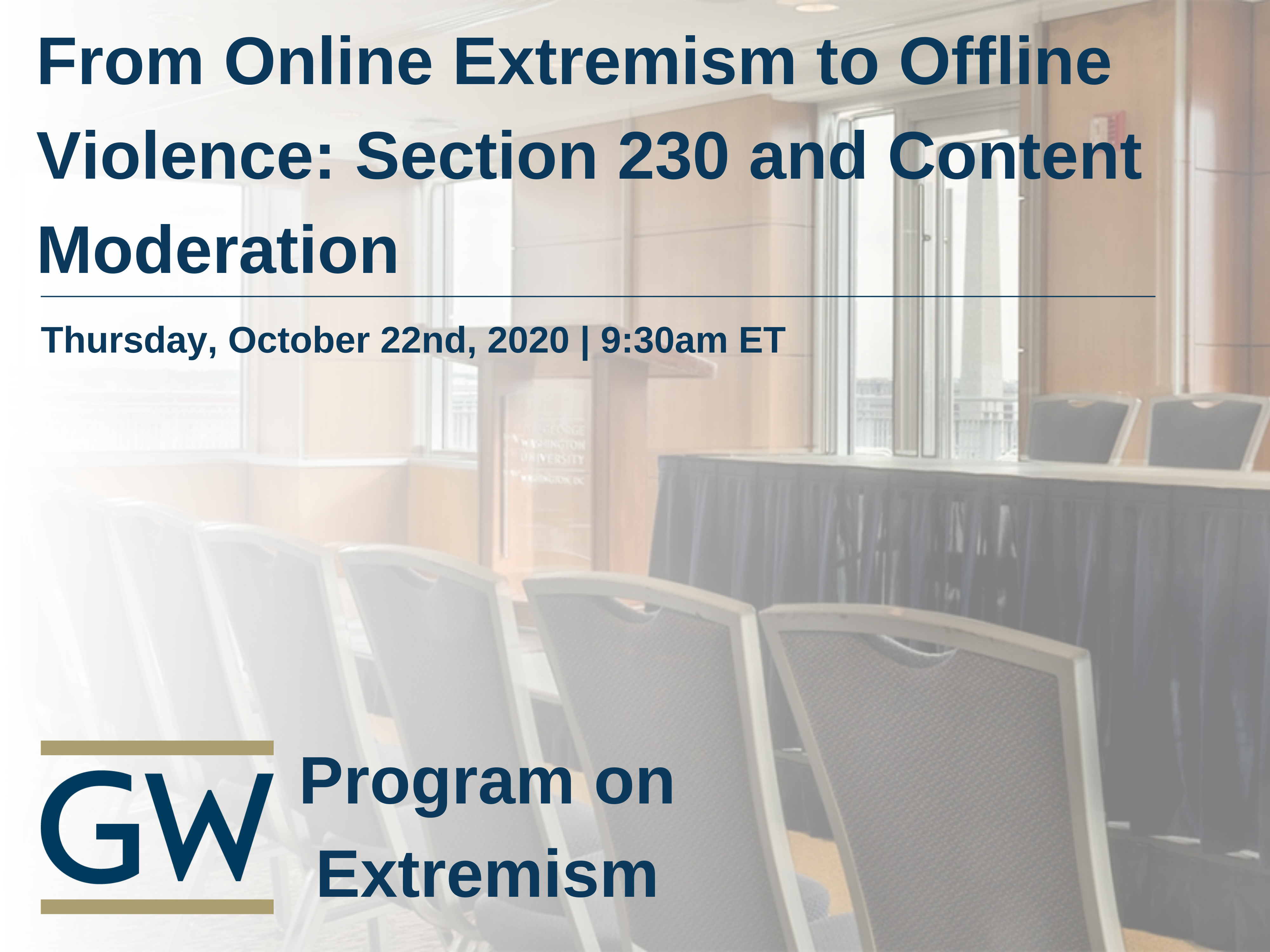From Online Extremism to Offline Violence: Section 230 and Content Moderation

Summary
Terrorist attacks in Pittsburgh and Christchurch have increasingly underscored the links between online extremist content and offline violence. In the aftermath of these incidents, nations such as the United Kingdom, Australia, and France proposed regulatory measures to more robustly target extremist content online. In the United States, Section 230 of the Communications Decency Act, which provides immunity to online platforms based on third-party user content, has become one of the most important and controversial aspects of content moderation efforts. Section 230 has had an outsized impact on efforts to counter terrorist use of the internet, and recent proposals by the Department of Justice highlight the ongoing debate over the need to reform the statute.
On October 22, 2020, the Program on Extremism at The George Washington University held a panel discussion on Section 230 and terrorist use of the internet. A panel of experts explored topics such as the potential government regulation of tech companies, the Department of Justice's proposed revisions to Section 230, as well as legal responses to domestic terrorism. A discussion followed the panelists' remarks, moderated by Program on Extremism Senior Research Fellow Devorah Margolin. The panelists included:
- Audrey Alexander, Researcher and Instructor at the Combating Terrorism Center at West Point.
- Alexander Guittard, Fellow at the Program on Extremism.
- Mary McCord, Senior Litigator from Practice at the Institute for Constitutional Advocacy and Protection, Visiting Professor of Law at Georgetown University Law Center, and former Acting Assistant Attorney General for National Security at U.S. Department of Justice

